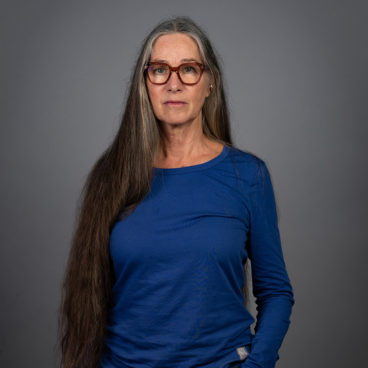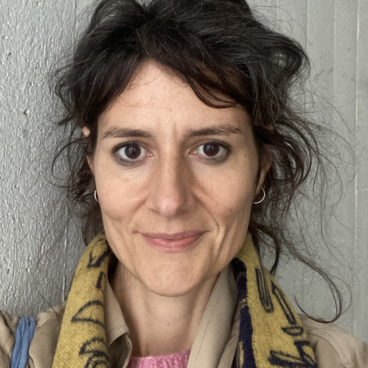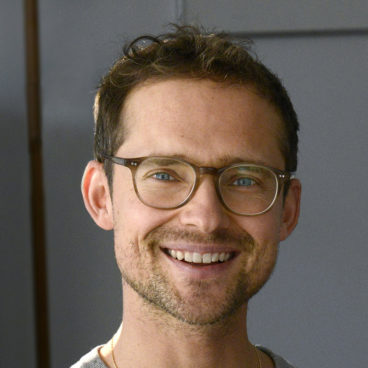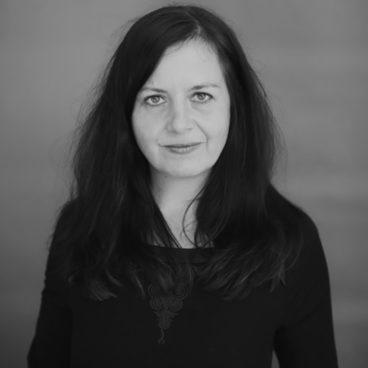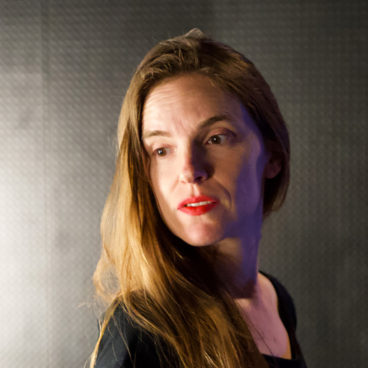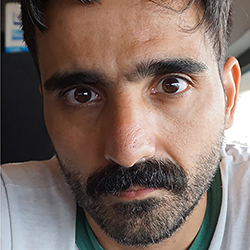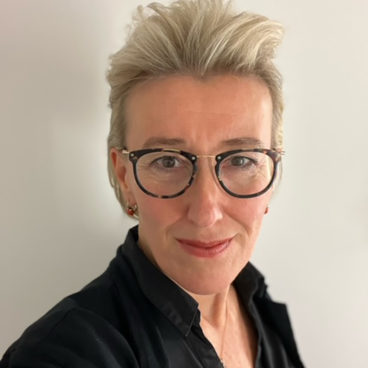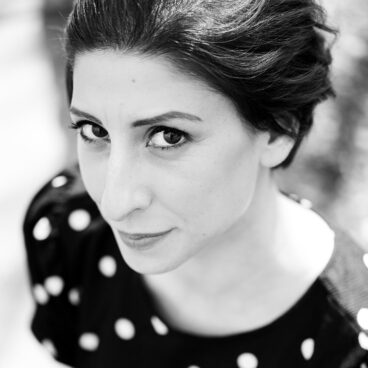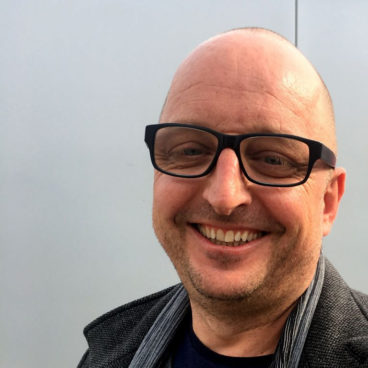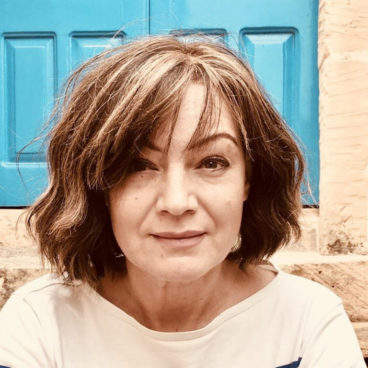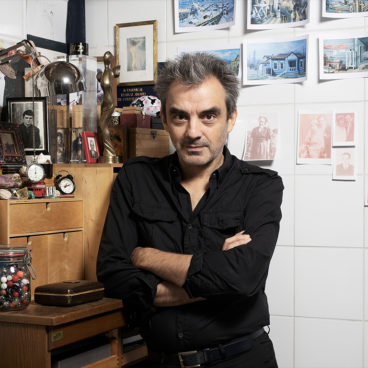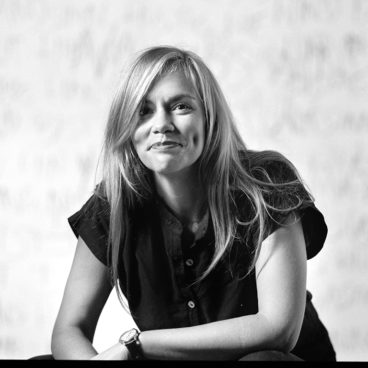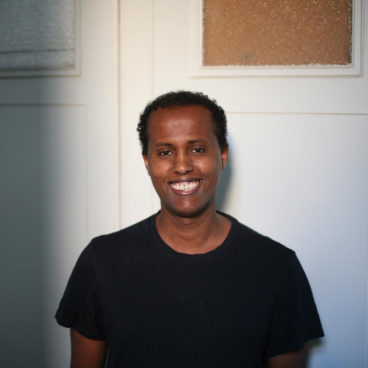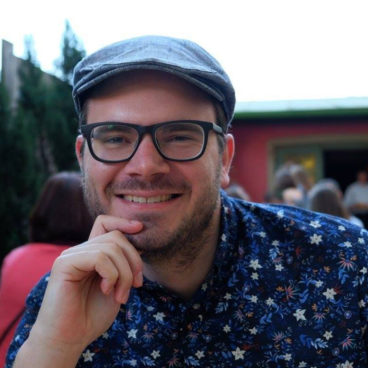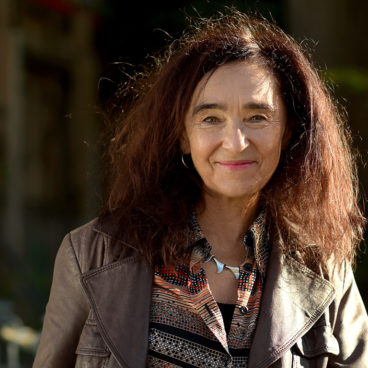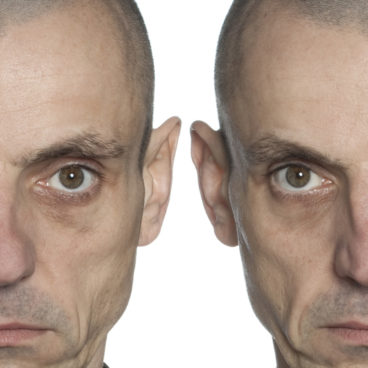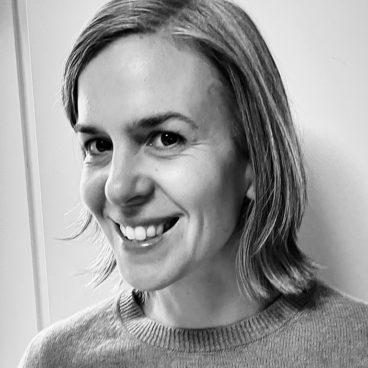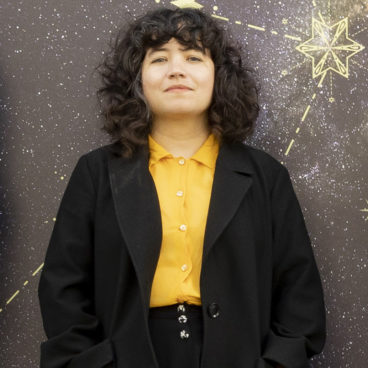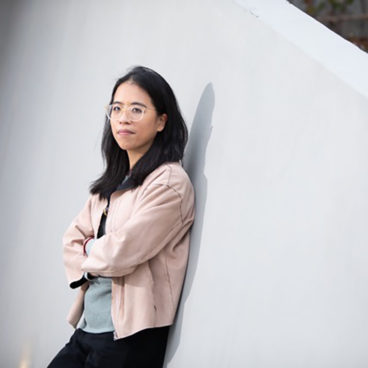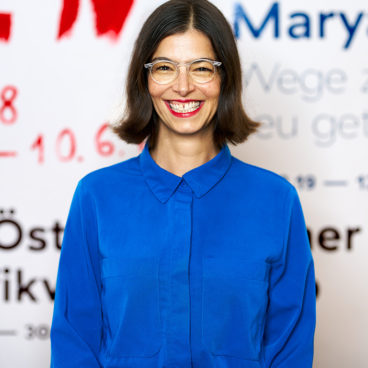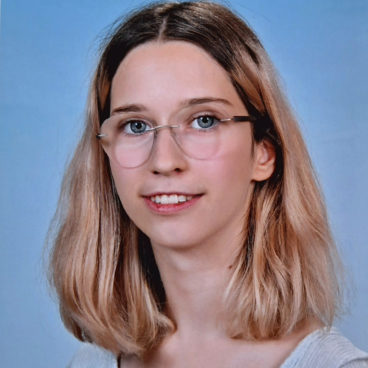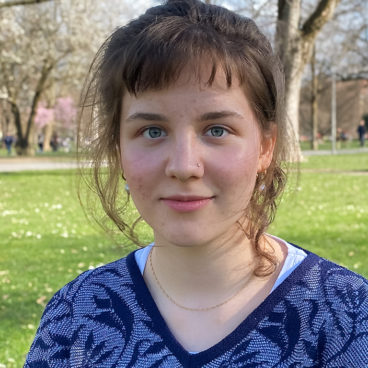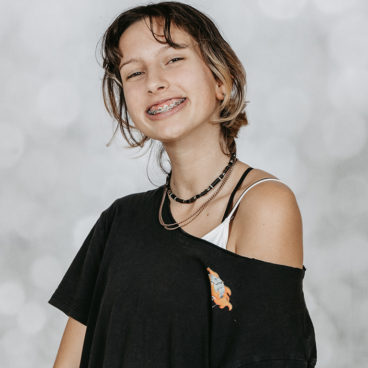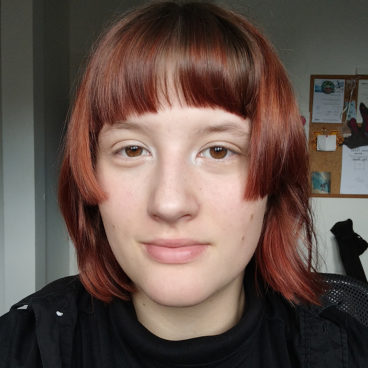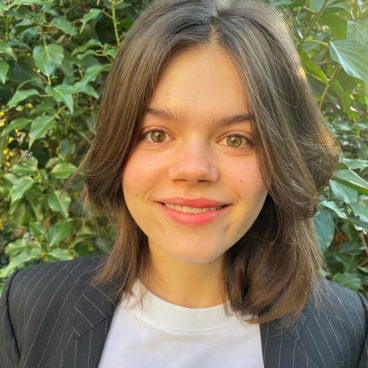| Diagonale | Juries 2024 |
As part of the Diagonale, Austria’s most highly endowed film prizes totalling around € 111,500 will also be awarded by international juries at the upcoming 2024 edition, thereby honouring the many achievements associated with the production of a film.
Jury Feature Film
Ortrun Bauer (Cinematographer, Editor, AT)
Born in Berlin. Ortrun Bauer studied violoncello at the University of Music and Performing Arts Graz, followed by a double degree in cinematography and editing at the Vienna Film Academy. Since then she has been shooting and editing feature films, documentaries, opera, dance and experimental films as well as multimedia and video art films. Her work has been shown at the Hof Film Festival, the Viennale, the Diagonale and the Oberhausen Short Film Festival. The creation of documentaries is increasingly coming to the fore, and she also shoots passionately on a Bolex 16mm. Ortrun Bauer is a member of the Cinematographers, Women* Cinematographers Network and the Austrian Film Academy.
Elena Meilicke (Film Critic, DE)
Elena Meilicke is a media and cultural scientist. She works as a research assistant at the Berlin University of the Arts and in the artistic-scientific research project “Confronting Realities. Working on filmic auto-sociobiographies”, which is based at the Film Academy Vienna. Her dissertation “Paranoia and Technical Image” was published in 2021, and she is currently working on a monograph on the film, media and cultural history of resilience. Her work also focuses on media and gender, feminist film studies and the history, theory and practice of film criticism. As a film critic, Elena Meilicke writes regularly for art and culture magazines such as “Cargo”, “Merkur” and “Texte zur Kunst” and has been awarded the Siegfried Kracauer Prize for Film Criticism.
Silvan Zürcher (Director, CH)
Silvan Zürcher, born in 1982 in Aarberg (Switzerland), studied philosophy, film studies and German language and literature in Bern and Zurich, followed by film production at the German Film and Television Academy Berlin (DFFB). In 2013, his first feature film Das merkwürdige Kätzchen premiered in the Forum of the Berlinale. This was followed by numerous international festivals (including Toronto, Cannes, New Directors/New Films) and awards (including the Viennale’s “Standard Readers’ Award”). In 2021, The Girl and the Spider premiered in the international competition Encounters at the Berlinale, where it received the award for Best Director and the FIPRESCI Prize. His screenplay and editing were honoured at the German Film Critics’ Award and Mar del Plata IFF. He is currently in post-production on the final part of the animal trilogy The Sparrow in the Chimney. He was a member of the Encounters jury at the 2022 Berlinale and is a member of the European Film Academy.
Jury Documentary Film
Dunja Bialas (Film Journalist, Festival Director, DE)
Dunja Bialas, film critic and curator. Studies of French and Comparative Literature in Munich and Paris. She has been the editor of the online film magazine “artechock” since 2000. From 2002 to 2013 she worked as a curator at Dok.Fest Munich. She co-founded the film festival UNDERDOX for experimental and documentary forms in 2006, together with Bernd Brehmer from the Werkstattkino collective. From 2013-2023, she was spokesperson for the executive committee of the Association of German Film Critics and co-founded the Critic’s Week Berlin in 2015. In 2014, she founded VIDEODOX, a biennial exposition for video art in Munich. Since 2018, she has taught film criticism at the Ludwig Maximilian University of Munich. She lives and works in Munich.
Tsveta Dobreva (Festivaldirector, FR)
Born in Bulgaria, Tsveta Dobreva studied cinema, management and cultural project management in Germany (Bochum) and France (Paris and Montpellier). In Germany, she worked for the European Capital of Culture RUHR.2010, among others, before joining the Goethe-Institut in Paris in 2014, where she was responsible for European and international projects. Between 2015 and 2018, she was Deputy Director and Head of Programming at the Goethe-Institut in Marseille. In December 2018, she joined the FIDMarseille team as General Secretary and the FIDLab selection committee. In April 2022, she was appointed Director of FIDMarseille
Cem Kaya (Director, DE)
Born 1976 in Schweinfurt. Director, producer, cameraman, editor. Studied communication design at the Merz Akademie, Stuttgart. Initially worked as a producer, editor and director for advertising films and music videos. 2010 and 2014: First feature-length documentary films about Turkish pop culture: Arabeks (2010) and Remake, Remix, Rip-Off (2014). 2017 Image design for the investigative film 77sqm_9:26min by the London-based group Forensic Architecture. Aşk, Mark ve Ölüm / Love, D-Mark and Death (2022) is about the music culture of Turkish labour migrants in Germany. The film won the Audience Award at the Berlinale 2022.
Jury Acting Awards
Ute Baumhackl (Chief Reporter Culture and Society, Kleine Zeitung, AT)
Born in Graz in 1968, grew up in southern Styria. Studied various foreign languages (Arabic, English, Russian). Editor at the Kleine Zeitung since 2005, 2013 – 2023 Head of Culture & Media, since 2024 Chief Reporter Culture & Society.
Zeynep Buyraç (Actress, AT)
Zeynep Buyraç is an actress, born and raised in Istanbul. She completed her acting training at the Music and Arts Private University of the City of Vienna and her dance training at the Pera Conservatory in Istanbul. Engagements have taken her to the Landestheater Linz, Stadttheater Klagenfurt, Bregenz Festival, Ankara State Theatre, Slovak National Theatre and Werk X Vienna, among others. Zeynep Buyraç also regularly appears in front of the camera for TV and film projects and has been a member of the Burgtheater ensemble since 2023.
Christian Konrad (Head of Film Department, ORF, AT)
Studied classical guitar at the Academy of Music in Vienna. After completing his studies, he started at ORF as a holiday trainee in the “Kunststücke” programme, later switched to culture and finally ended up in the film department. He has been the head of the film department at ORF since October 2010.
Marion Mitterhammer (Actress, AT)
Marion Mitterhammer (* 1965 in Bruck a.d. Mur) initially studied at the University of Music and Performing Arts in Graz. After completing her training, she went to Germany and took on an engagement at the Baden-Baden Theatre. She performed at the Salzburg Festival and finally went to the Theater in der Josefstadt in Vienna for two years. In 1992, Bernd Fischerauer cast the then unknown actress as Lotti von Mitzko in his multi-part film Der Salzbaron. The role earned Mitterhammer the award for Best Young Actress at the Austrian Film Awards in 1994 and marked the beginning of her television career.
Goran Rebić (Director, AT)
Goran Rebić was born in 1968 in Vršac in Vojvodina in the former Yugoslavia. In 1969, he migrated with his parents to Vienna, where he later studied directing at the Academy of Music and Performing Arts (Film Academy). In his first film, Gekommen bin ich der Arbeit wegen (AT 1987), Goran Rebić accompanies his father to the places where he looks for work and presents one of the first Austrian films about guest workers. This is followed by two essayistic documentaries on Georgia’s independence (During the Many Years, AT 1991) and the civil war there (Am Rande der Welt, AT 1992). In 1997 he made Jugofilm (Thomas Pluch Special Jury Prize at the Diagonale ’98), a year later Rebić appeared as an actor in Florian Flicker’s feature film Suzie Washington (AT 1998). Goran Rebić received the Grand Diagonale Prize in 2000 for The Punishment (AT 2000).
Jury Feature Film Short
Natascha Gangl (Writer, AT)
Writer, radio play and theatre maker, born 1986 in Bad Radkersburg. Explores language in different aggregate states: written, staged, collaged, spoken, performed – on theatre stages, in concert and exhibition spaces, in books, on record, in radio formats such as radio plays, radio essays or features. After many years in Spain and Mexico, she now lives and works in Vienna.
Mo Harawe (Director, AT)
Mo Harawe was born in Somalia. He studied visual communication and film. He has made several short films that have been shown at international film festivals and won numerous awards.
Florian Widegger (Curator, AT)
Florian Widegger (*1986 in Schärding/Inn) studied journalism and communication studies and has worked in various positions in the film industry since 2007. Since 2017, he has been programme director and curator at the METRO Kinokulturhaus of the Filmarchiv Austria and editor of publications on Karin Brandauer, Axel Corti and Götz Spielmann, among others. He is also a regular contributor to the film magazines Deadline and Celluloid Filmmagazin.
Jury Documentary Film Short
Karin Berger (Director, AT)
Karin Berger, born in Lower Austria, director and author, studied ethnology and political science in Vienna. From the early 1980s onwards, film and academic work in feminist and contemporary historical contexts. She has produced documentary films, book publications and installations. The focus of her interest is on biographical remembrance of the effects of National Socialism. In the mid-1980s, she worked collectively on an Austria-wide interview project on women in resistance to the Nazi system, the film Küchengespräche mit Rebellinnen and the book Der Himmel ist blau were published. Two books and the films Ceija Stojka and Unter den Brettern hellgrünes Gras were produced during the 25-year collaboration with the Romni and contemporary witness Ceija Stojka, and Wankostättn – Ein Überlebender erzählt was released in 2023.
Norbert Pfaffenbichler(Filmmaker, AT)
Born in Styria, Norbert Pfaffenbichler (*1967) is an artist, filmmaker and curator. He studied visual media design at the University of Applied Arts in Vienna. Numerous festivals and exhibitions at home and abroad.
Julia Zutavern (Critic, Film Scholar, CH)
Julia Zutavern (*1980) studied film studies, literature, journalism and journalism in Zurich and Hamburg, was (senior) assistant and lecturer at the Department of Film Studies at the University of Zurich for several years (2006-2018), lecturer in media ethics at the University of Applied Sciences Graubünden (2020-2023), co-editor of the magazine Montage AV (2013-2018), board member of the International Short Film Festival Winterthur (2006-2010) and freelancer at DOCMINE Productions (then Condor Films, 2005-2008). Since 2009, she has been writing film and series reviews for the WOZ, Filmbulletin and Tages-Anzeiger, among others.
Jury Innovative Cinema
Elena Duque (Director, Curator, ES)
The Spanish-Venezuelan Elena Duque is a filmmaker, programmer, writer and teacher. Her experimental and animated pieces revisit themes such as identity and the sense of belonging through plastic exercises around places, objects and textures, and have been shown at various international festivals and institutions. She is programmer of (S8) Mostra de Cinema Periférico in A Coruña, professor at the Universidad Camilo José Cela in Madrid and regularly gives workshops and talks. She was the guest programmer in the last edition of Doc’s Kingdom, documentary seminar held in Portugal, and was a programmer for the Seville European Film Festival for 10 years. She has curated programs for festivals and institutions such as the San Francisco Cinematheque, the Images Festival in Toronto, VideoEx in Frankfurt, among others.
Christina Li (Curator, Art Critic, NL)
Christina Li is a curator and writer lives and works in Amsterdam. As director of Spring Workshop, Hong Kong (2015–17) she curated projects such as A Collective Present (2017), Wu Tsang: Duilian (2016), and Wong Wai Yin: Without Trying (2016). Her recent shows include the Bangkok-based triennial video and performance art series, Ghost 2565: Live Without Dead Time (2023), Pilvi Takala: Close Watch, Pavilion of Finland at the 59th Venice Biennale (2022), Xinyi Cheng: Seen Through Others, Lafayette Anticipations, Paris (2022); …pausing barely, barely pausing…, A Tale of A Tub, Rotterdam (2021); Palms, Palms, Palms. Li’s writing appears in Artforum, Art Review Asia, LEAP, Parkett, Spike, and Yishu Journal of Contemporary Art among others.
Nina Tabassomi (Curator, Theatre Scholar, AT/DE)
Nina Tabassomi is a curator and theater scholar. She has been the director of the TAXISPALAIS Kunsthalle Tirol since 2017 where she curated among others the exhibition trilogies on the crisis of Western paradigms (WITCHES/ GODDESSES/ STORIES OF TIME) and the trilogy about togetherness in Western Europe (Gurbette Kalmak. Staying in foreignness/ die Wissen/ Ich bin anders, weil ich kann das. Stranger belongs to me together with others). Born in Berlin, she began her career in her home city: among others, she worked as a project manager at KW Institute for Contemporary Art in Berlin. From 2013 to 2015, she was curator at the Fridericianum in Kassel, where she was responsible for the exhibition programme for the Museum Tower. In 2016, Tabassomi was curator of Ludlow 38, an art space of the Goethe Institute in New York City.
Youth Jury
Chiara Bach (18 years, BORG Monsberger Graz)
Marie Hammerl (18 years, BG Lichtenfels Graz)
Magdalena Piffl (16 years, Modellschule Graz)
Emma Pölzl (17 years, Modellschule Graz)
Rosa Zant (19 years, graduated 2023)
The youth jury was put together in the course of a film seminar by Heidelinde Neuburger and Steve Csacsinovits. Initiated and organised by the Verein Kulturvermittlung Steiermark – Kunstpädagogisches Institut Graz (idea: Max Aufischer, management until 2018 | organisation: Luise Grinschgl, Natascha Reiterer). Supported by the Province of Styria/Youth and LICHT WERK GRAZ.



